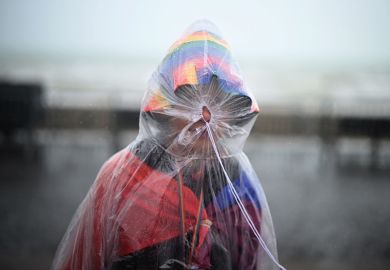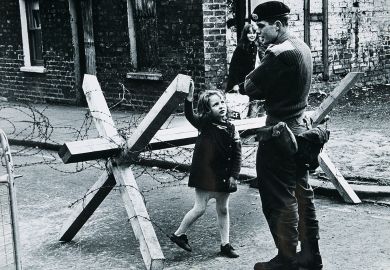The world of the South Wales mining communities is gone – but, as Hywel Francis shows in this rich and moving work, the vigour of those communities and the strength of their memories have in many ways contributed to their rebirth.
Francis was born in 1946 in Onllwyn, at the head of the Dulais Valley, which, he says, “now barely exists”. His great-great grandfather, grandfather and father were miners, and he himself, “historian, adult educator and political activist” (and a long-time professor of adult continuing education at the University of Wales), founded the South Wales Miners’ Library, played a leading role in the 1984-85 miners’ strike and served as MP for Aberavon from 2001 to 2015.
This is a varied collection of essays and articles, most of them previously published (one in the Times Higher Education Supplement in 1995). But it is more than the sum of its parts, revolving around the themes of family, class and community. It is a tribute to his father, Dai Francis (1911-81), who was general secretary of the National Union of Mineworkers in South Wales from 1963 to 1976 and founding chair of the Wales Trades Union Congress in 1975. It shows how his part of the Welsh Valleys above Neath was transformed by the expansion of the coal industry to become the “American” Wales: the population of the Upper Dulais parish rose from 479 in 1871 to 4,569 in 1911. A company town run by a tyrannical mine owner developed a class consciousness shaped by the Great War, the Great Depression, the fight against fascism abroad and police and judicial repression at home, which sharpened a strong sense of social justice. The community formed first around the chapel and rugby club, then around the union lodge and the miners’ welfare hall, which was founded in 1955. What Francis calls a culture of “lifelong collective learning” was fostered by the workmen’s institutes and the Central Labour College.
Francis demonstrates that this sense of community was not inward-looking but had an internationalist dimension. Spanish workers came to the area in 1911 and miners volunteered to fight in the International Brigades to defend the Spanish Republic. Paul Robeson sang in the Valleys in the 1930s and Welsh miners were at the forefront of the anti-apartheid struggle from the 1960s. Working-class women from the Rhondda were pioneers of the Greenham Common peace protests. The solidarity of the miners was mobilised in the successful strikes of 1972 and 1974, then in the brutal year-long strike of 1984-85. It was sustained by women’s and community groups around the slogan “close a pit, kill a community”, articulated in the Wales Congress in Support of Mining Communities, chaired by Francis himself, and reached out to groups such as the London Lesbians and Gays, as dramatised in the 2014 film Pride.
The end of the strike brought pit closures and the devastation of the mining communities. But the solidarity learned over a century in those communities has not died. Francis shows how it has been reincarnated in the DOVE Women’s Training Workshop of the Dulais Valley and the Community University of the Valleys set up at Banwen in 1993. This wonderful book is full of nostalgia, but shows how lessons in social solidarity and justice from the past can and must be projected into the future.
Robert Gildea is professor of modern history at the University of Oxford. His new book, Empires of the Mind: The Colonial Past and the Politics of the Present, will be published next year.
Stories of Solidarity
By Hywel Francis
Y Lolfa, 240pp, £9.99
ISBN 9781912631032
Published 13 September 2018
Register to continue
Why register?
- Registration is free and only takes a moment
- Once registered, you can read 3 articles a month
- Sign up for our newsletter
Subscribe
Or subscribe for unlimited access to:
- Unlimited access to news, views, insights & reviews
- Digital editions
- Digital access to THE’s university and college rankings analysis
Already registered or a current subscriber? Login





